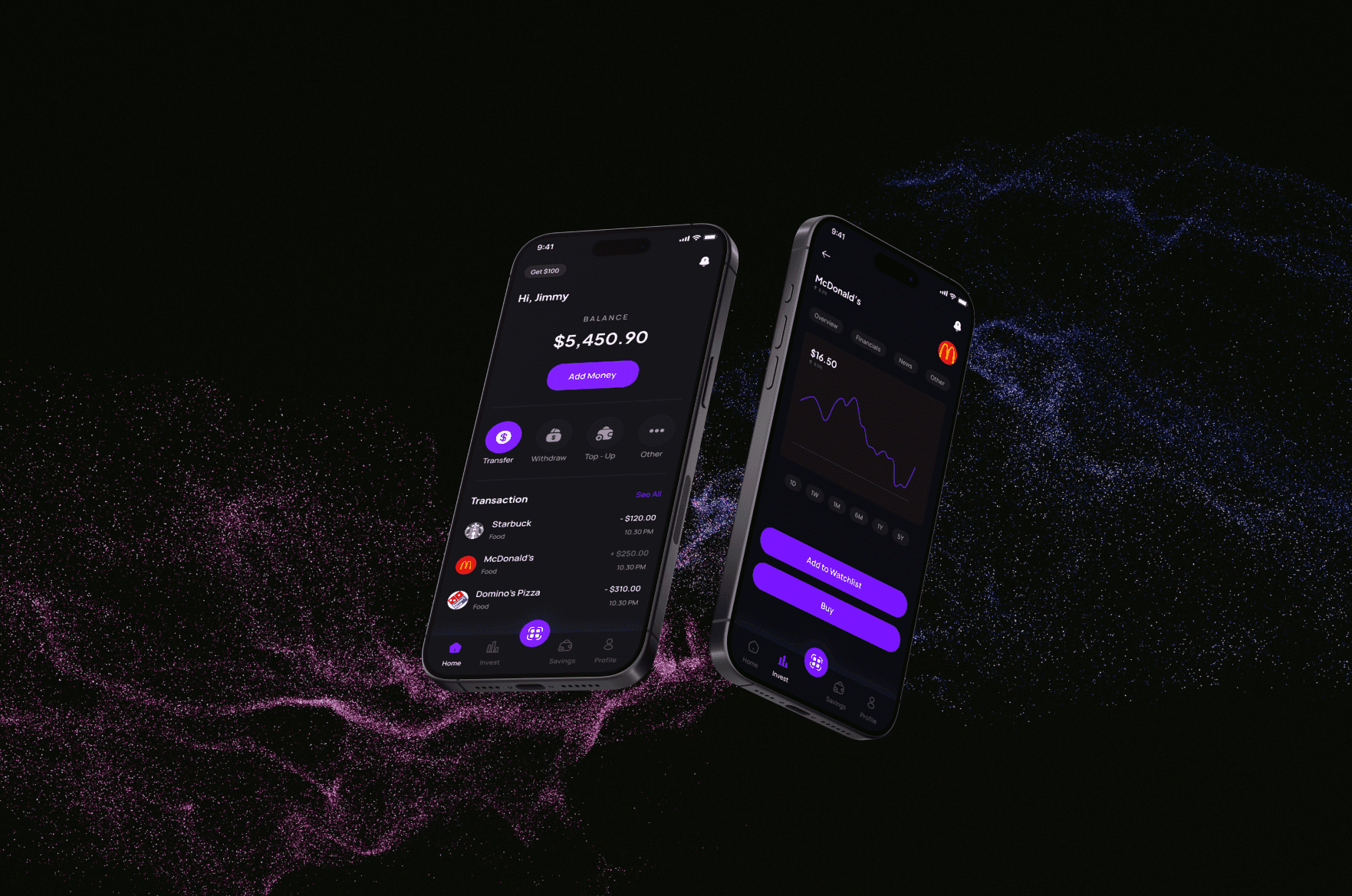Mindgard
12 weeks
Product Design
Introduction
Mindgard, a London-based startup, aims to secure the future of AI against cyberattacks targeting AI, GenAI, and LLMs. Mindgard enables enterprises to thoroughly assess and secure their AI systems.
The task is to design an overview dashboard for B2B enterprise customers, such as Offensive Security Engineers, Security Architects, and Responsible AI Engineers, to understand and manage AI security risks effectively.
The Problem
Enterprises face challenges in effectively understanding and managing the complex AI security risks associated with their models. Customers need tools to visualize changes in AI security risks over time to identify and address areas of concern proactively.
Mindgard AI Security Labs requires an informative and user-centric Overview Dashboard to empower B2B enterprise clients in effectively managing AI security risks associated with their models by providing them with Comprehensive Risk Visibility, Actionable Insights, Prioritized Remediation Strategies, and Trend Analysis.
Design Process
The Mindgard's development process seamlessly progressed through research, design, and app development, culminating in rigorous testing and a compelling presentation. This holistic approach ensured a user-centric solution that harmonized creativity, technical prowess, and advanced security measures.

Competitive Analysis
This enabled me gain insights into existing solutions offered by Mindgard’s competitors. This analysis will inform part of the decisions of Mindgard's Overview Dashboard, ensuring it provides a richer and more enhanced user experience.
Competitors include Sydelabs, Adversa, Robust Intelligence, and Hiddenlayer.
User Flow
The user flow outlines the steps a user takes to navigate through the Mindgard AI Security Labs dashboard. This section highlights the intuitive design and usability considerations made to ensure a seamless and efficient experience for Mindgard’s enterprise customers.
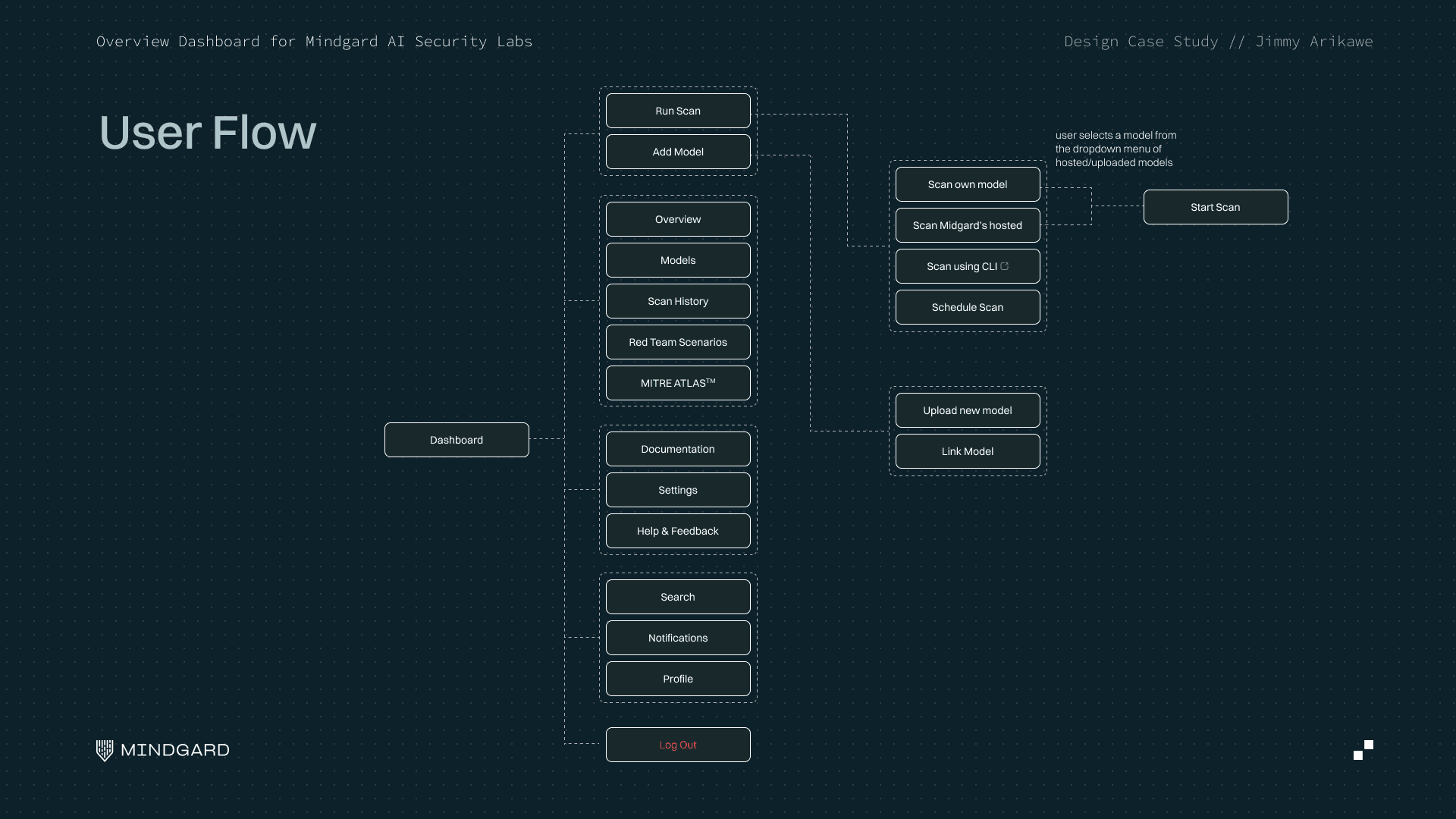
Design System/Style Guide
The style guide and component set for the Mindgard AI Security Labs dashboard were designed to ensure a consistent, professional, and user-friendly experience aligned with Mindgard's brand identity.
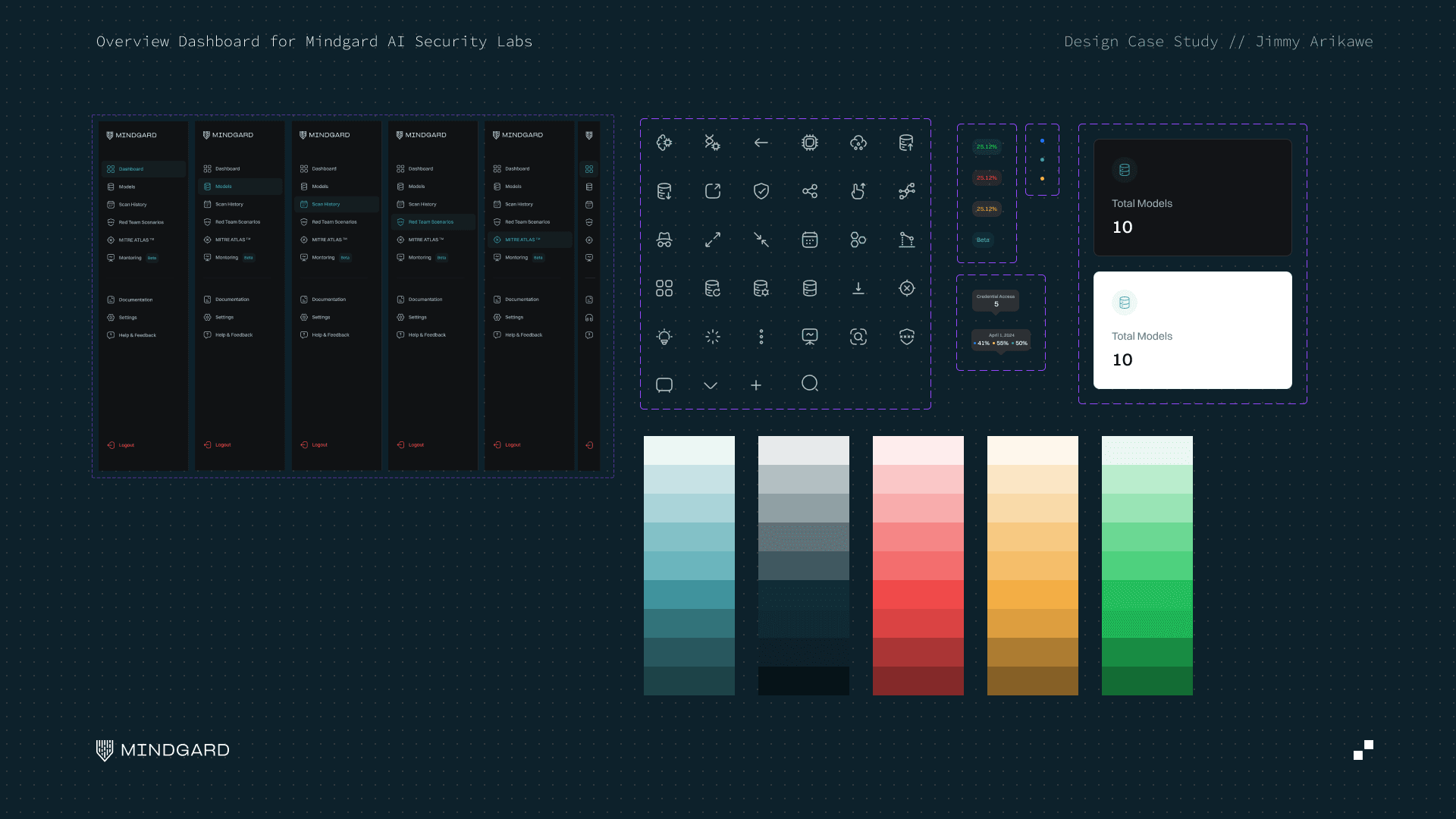
Design Solution
Risk Categories Section
A dashboard widget displaying a donut chart of risk categories as per MITRE ATLAS and their impact with hover-over.
The risk categories are represented with a clear and consistent color-coding system.
A summary section for each risk category with descriptions and examples.
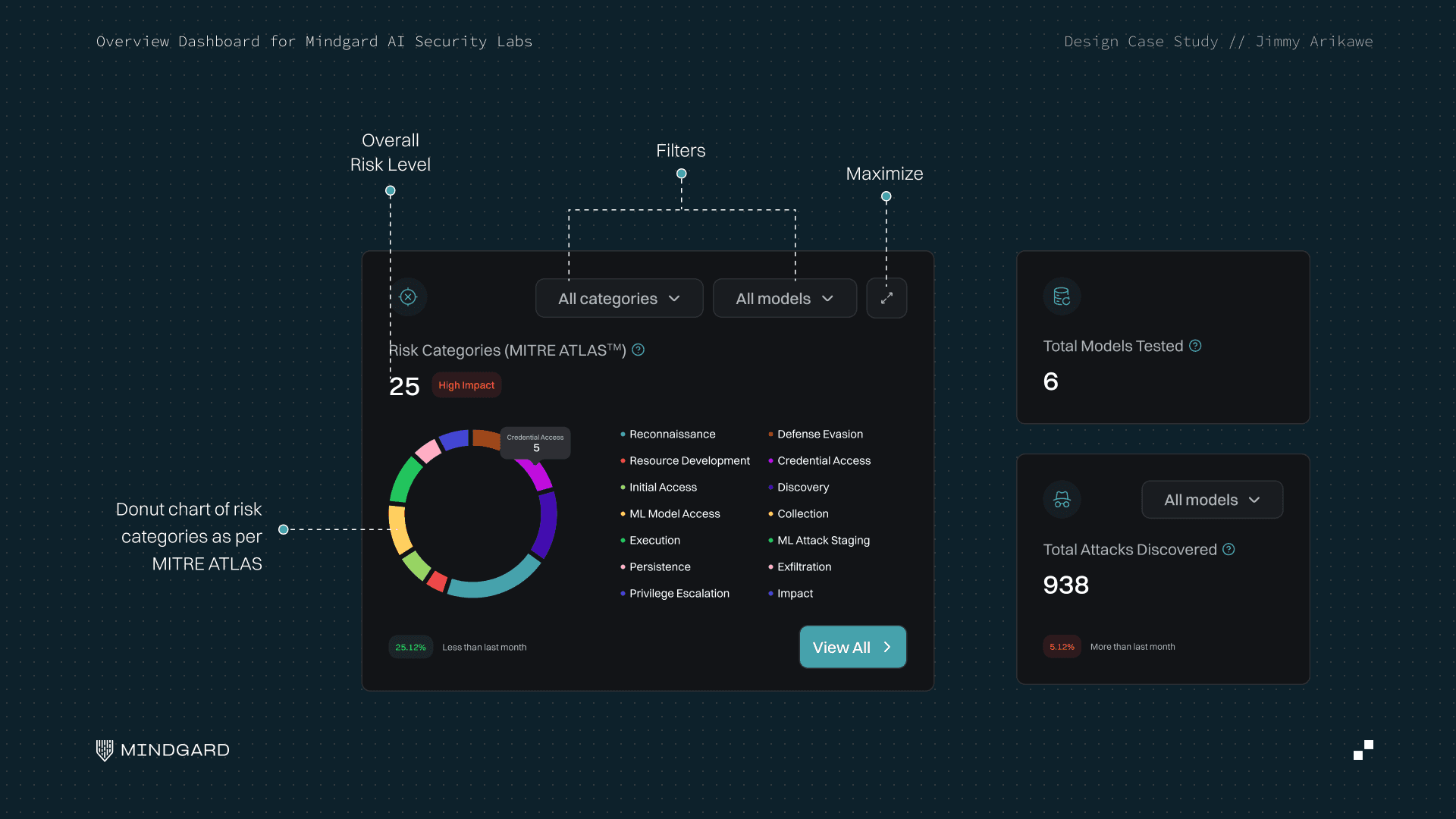
AI Model Inventory Section
Model List: Provides a table with AI model names, last tested dates, threat levels, risk scores, and attack metrics. Models are color-coded by threat level (green for low, yellow for medium, red for high).
Actions: Includes options for each model to download reports or view detailed scan results.
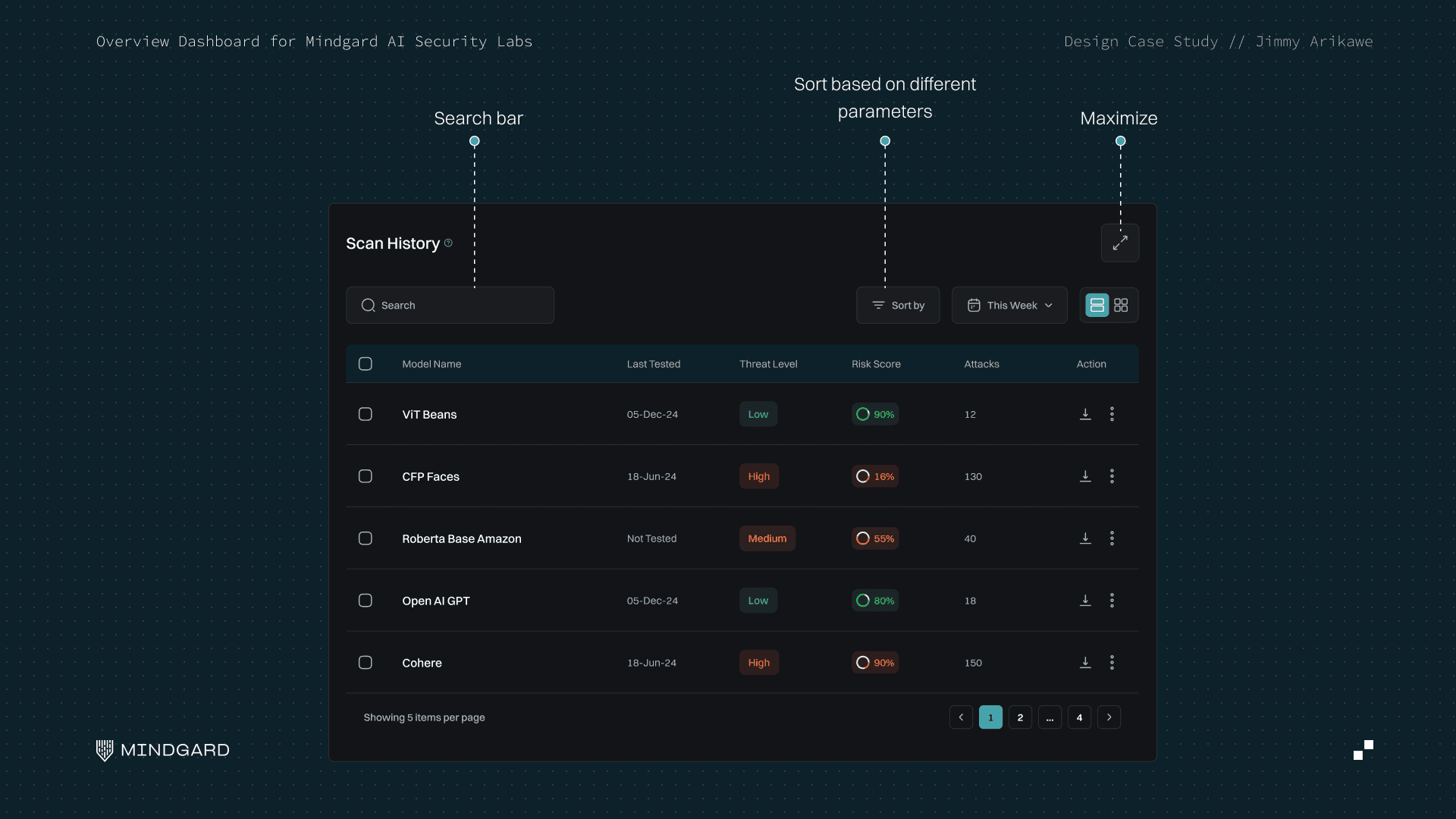
Remediation Guidelines Section
Top Guidelines: A prioritized remediation guidelines list with associated models, focusing on high-severity risks first.
Each guideline has an action button to "Remediate," offering a direct link to detailed remediation steps with further details in the drop-down
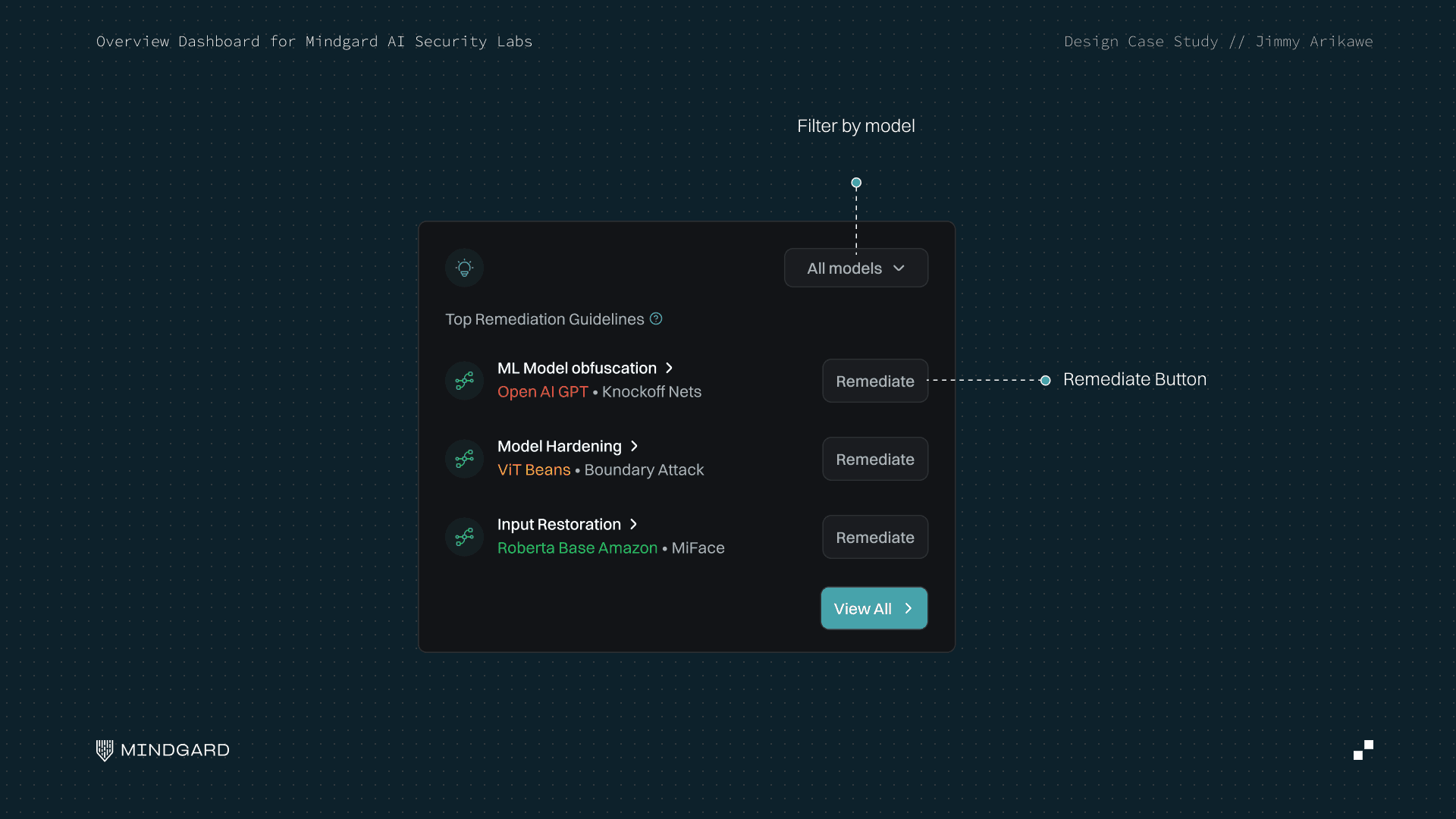
Visualize Trends
Line charts showing risk trends over selected periods.
Filters to customize data views.
Tooltips to show details when hovered on
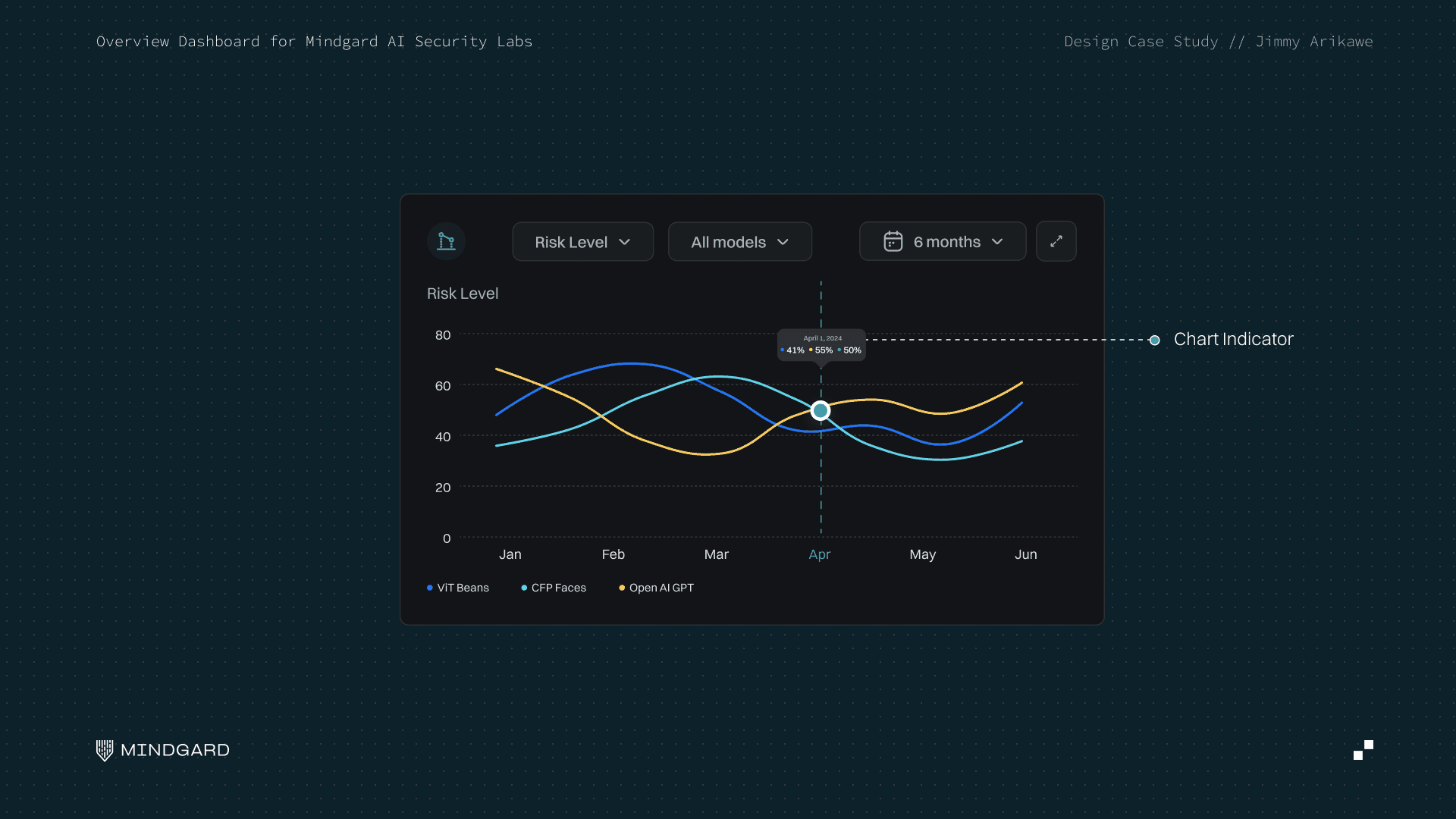
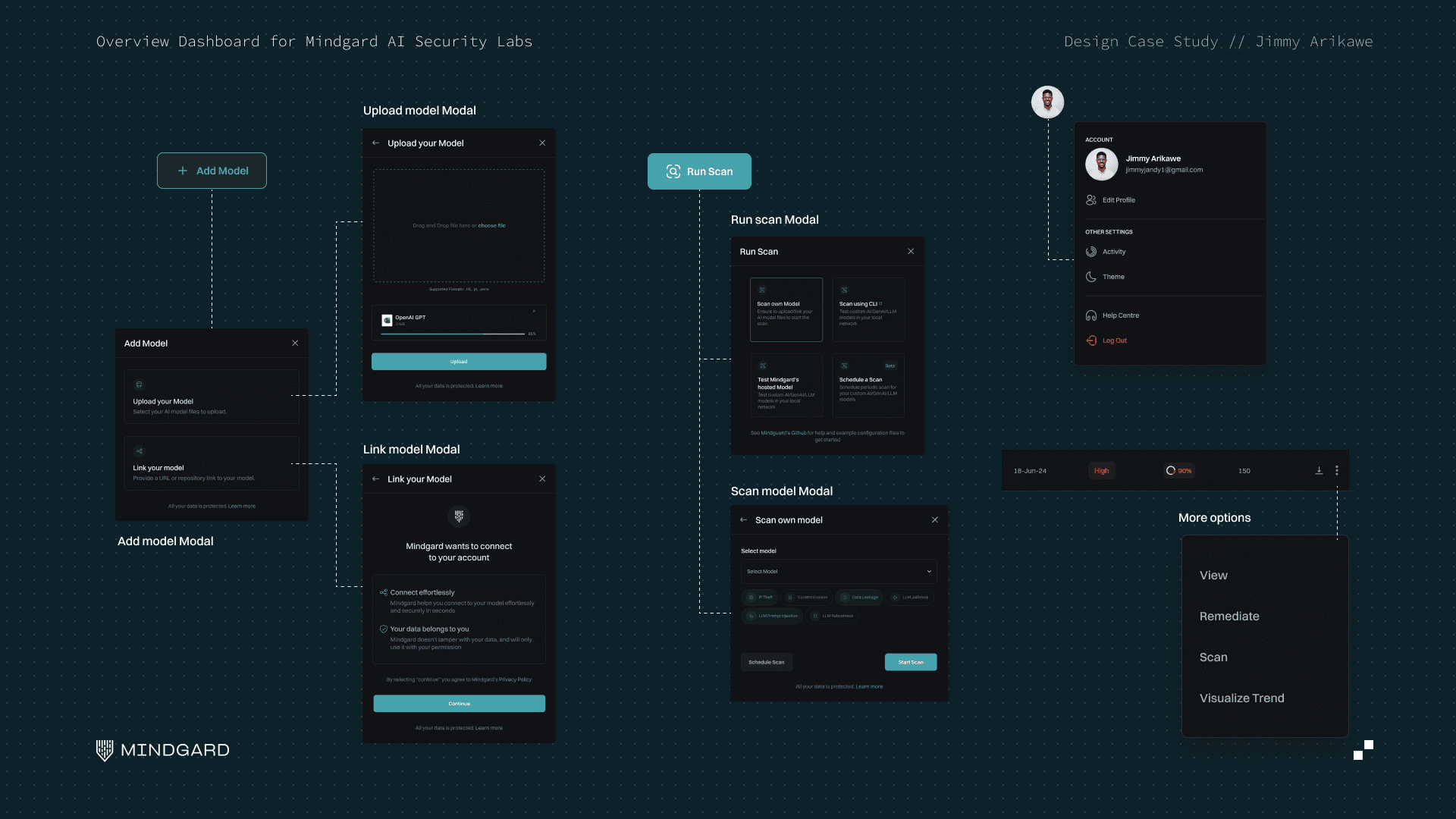
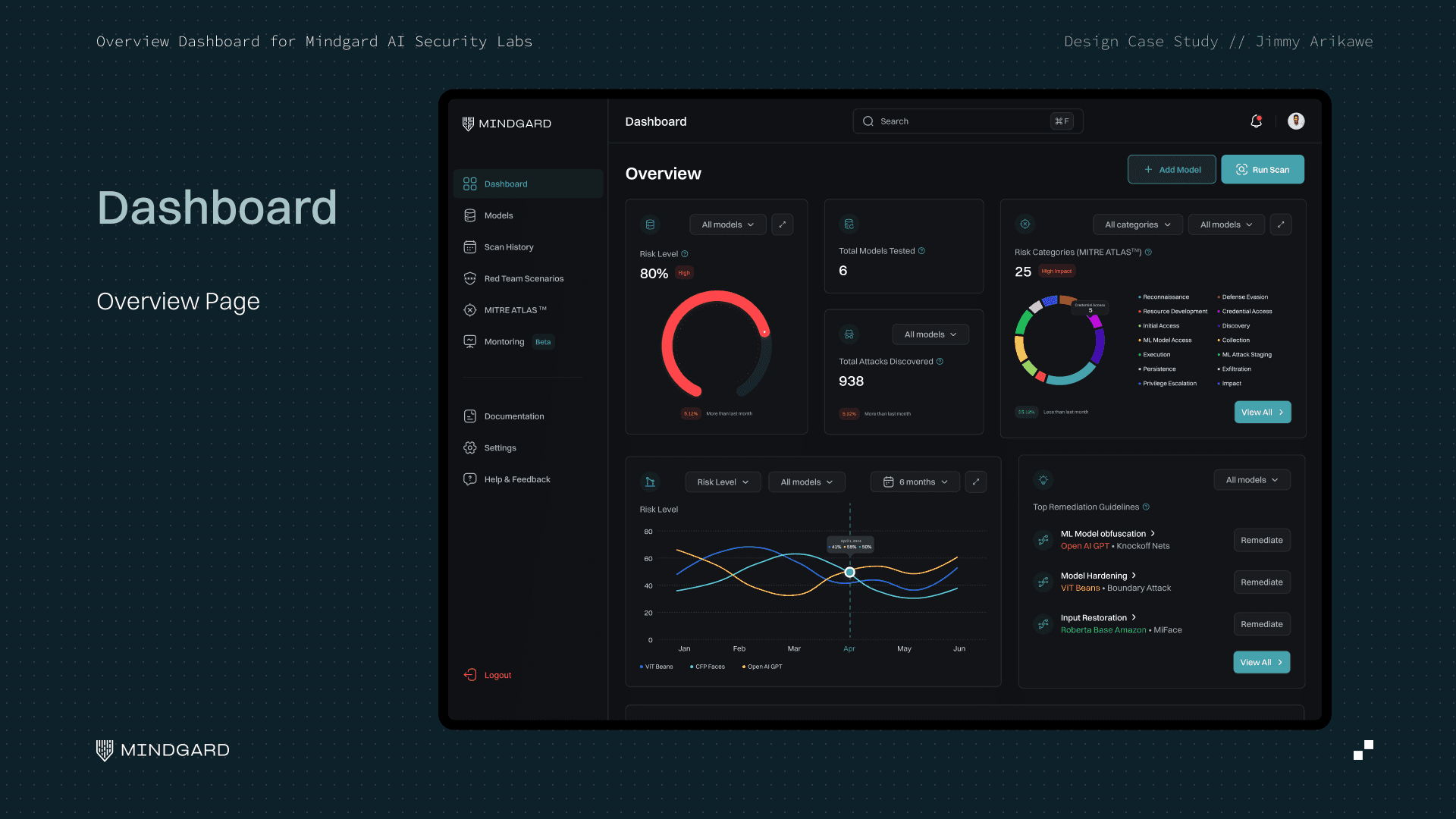

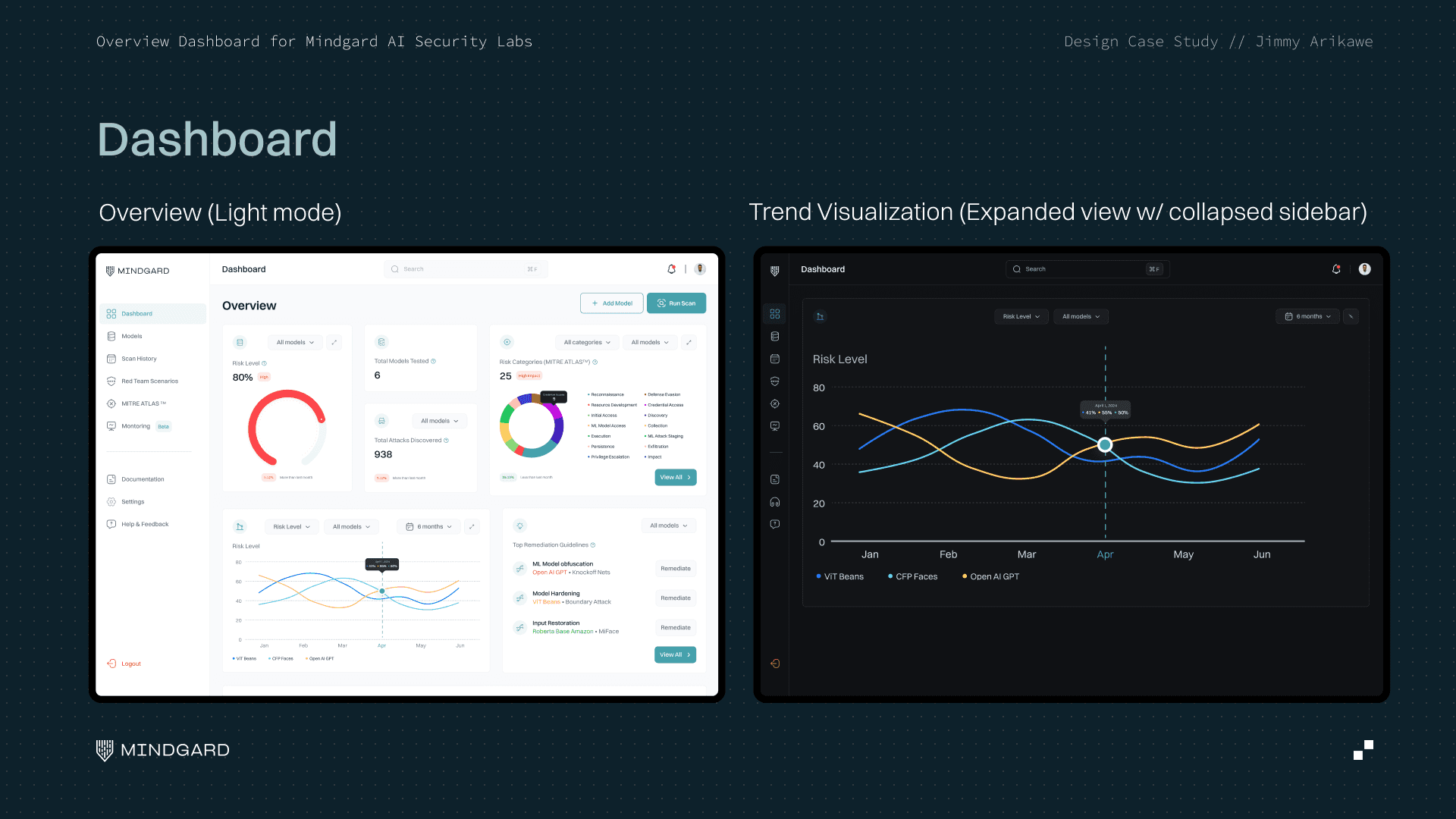
Next Steps for Finalizing Delivery
User Testing
Gather feedback from key user personas and conduct usability testing sessions to identify pain points and areas for improvement.
Iterative Design Improvements
Refine the prototype based on user feedback and enhance visual design for clarity and ease of use.
Documentation and Training
Create user guides and documentation and possibly provide training sessions for users to familiarize them with the dashboard features.
Continuous Monitoring and Updates
Regularly update the dashboard with latest updates (i.e. new risk categories, models, and remediation guidelines). Monitor user feedback and make continuous improvements.
Conclusion
The overview dashboard for Mindgard AI Security Labs provides a comprehensive and intuitive interface for enterprise customers to manage AI security risks effectively. By combining clear risk categorization, detailed model inventory, actionable remediation guidelines, and insightful trend visualizations, the dashboard empowers decision-makers to enhance their AI security posture proactively. This design aligns with Mindgard’s mission to secure the future of AI against evolving cyber threats.

